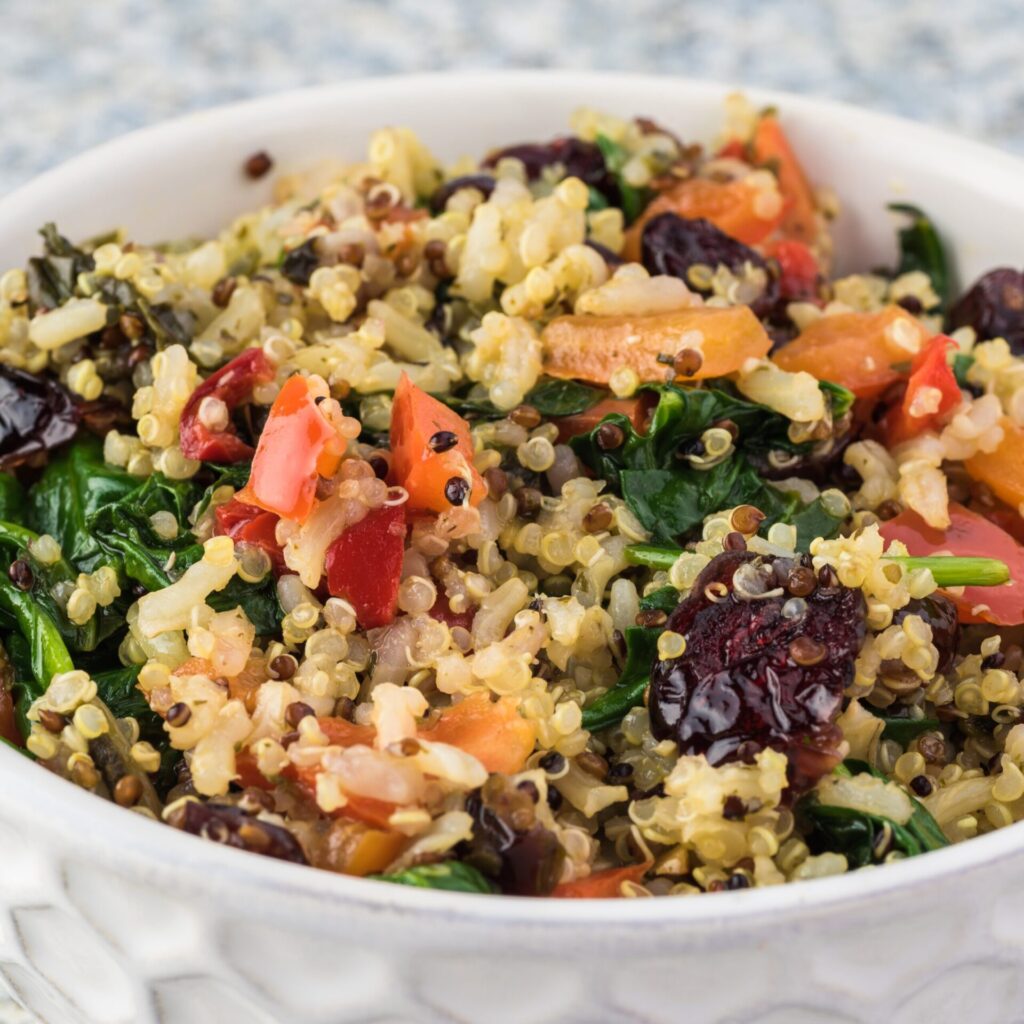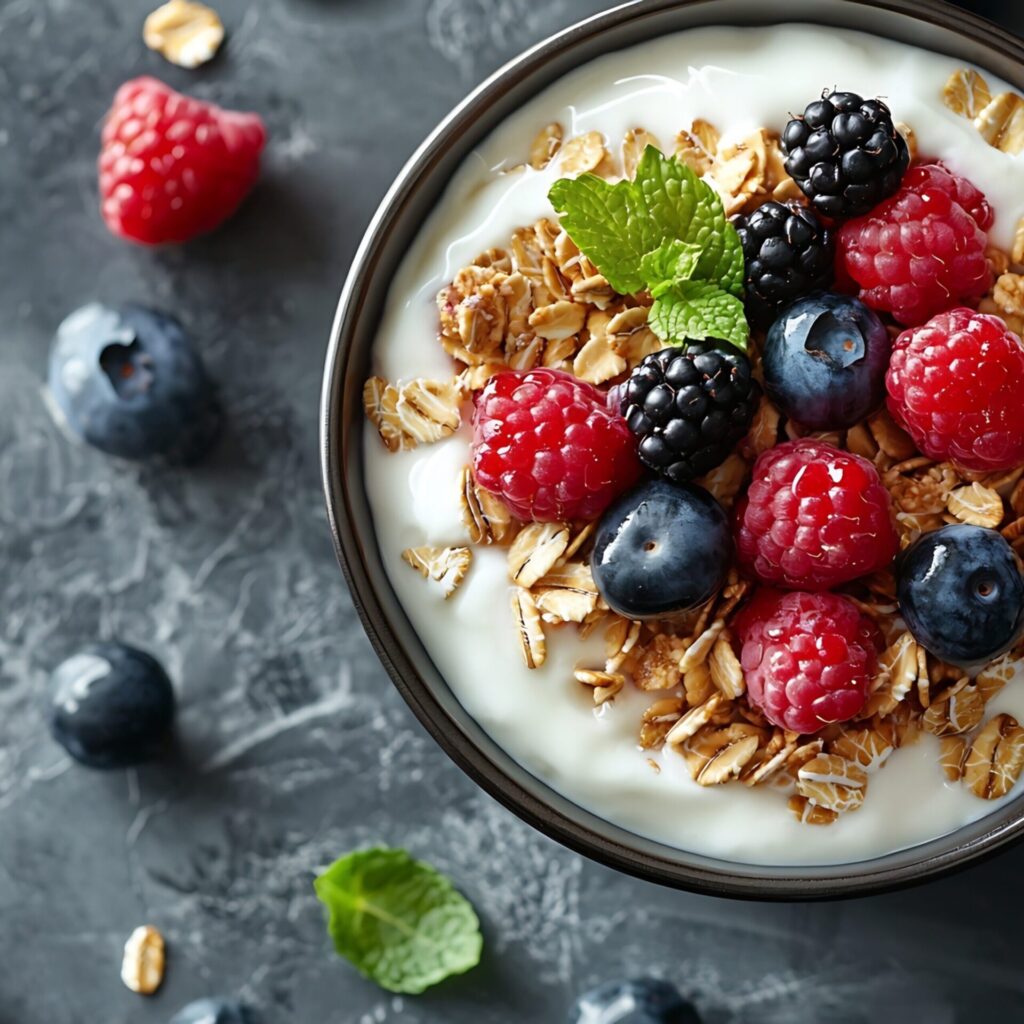Menopause, Aging, and Memory: How to Keep Your Brain Sharp After 50
We all know the jokes about walking into a room and forgetting why we’re there. Or misplacing our glasses—only to find them perched on top of our head. As we get older, we often chalk these moments up to “just part of aging.” But what if I told you that memory lapses, brain fog, and forgetfulness don’t have to be inevitable?
Menopause is a time of major shifts—not just for our bodies but also for our brains. The good news? There’s a lot we can do to support cognitive function, improve memory, and even build new neural pathways well into our later years. In this blog, we’ll explore the connection between menopause, aging, and brain health, dive into key nutrients that support cognitive function, and share practical tips (plus two easy, brain-boosting recipes!) to keep your mind sharp.
Menopause, Aging, and Memory: What’s Really Going On?
Menopause typically occurs between the ages of 45 and 55, bringing a significant drop in estrogen levels. Since estrogen isn’t just involved in reproductive health but also plays a crucial role in brain function, this hormonal shift can have a profound impact on memory and cognitive clarity.
Why Does Menopause Affect Memory?
1. Estrogen and Brain Function
Estrogen helps regulate neurotransmitters like acetylcholine, which is essential for learning and memory. As estrogen declines, so does this neurotransmitter’s efficiency, leading to memory lapses and brain fog.
2. Sleep Disruptions
Night sweats, hot flashes, and restless sleep? They’re not just annoying—they also interfere with memory consolidation. Deep sleep is when our brains process and store new information, so poor sleep can mean more forgetfulness.
3. Stress and Mood Shifts
Menopause can bring about increased anxiety and mood swings due to fluctuating hormones. Chronic stress, in particular, raises cortisol levels, which can impair memory and even shrink the hippocampus—the part of the brain responsible for learning.
While these changes are real, they don’t mean our mental sharpness is doomed. There are plenty of ways to support brain health through nutrition, movement, and lifestyle choices.
Nutrients That Support Brain Health
Eating for your brain is one of the simplest and most effective ways to support memory and cognitive function. Let’s look at three powerhouse nutrients that can help.
1. Magnesium: The Brain’s Relaxation Mineral
Magnesium is essential for over 600 biochemical reactions in the body—including those related to brain function. It helps regulate neurotransmitters, supports synaptic plasticity (the brain’s ability to form and strengthen connections), and plays a key role in relaxation and sleep.
Scientific Support: Studies have shown that magnesium deficiency is linked to cognitive decline and an increased risk of neurodegenerative diseases like Alzheimer’s. In contrast, magnesium supplementation has been found to improve working memory and attention.
Best Sources: Dark leafy greens (spinach, kale), pumpkin seeds, almonds, black beans, and quinoa.
2. Phosphatidylserine: The Memory Molecule
Phosphatidylserine (PS) is a type of fat found in brain cell membranes that helps with communication between neurons. As we age, levels of PS naturally decline, which may contribute to memory issues.
Scientific Support: Research indicates that supplementing with phosphatidylserine may improve memory, cognitive function, and even reduce symptoms of mild cognitive impairment.
Best Sources: Fatty fish (salmon, mackerel), soy, white beans, and sunflower seeds.
3. Vitamin B Complex: The Brain’s Energy Boosters
B vitamins—particularly B6, B9 (folate), and B12—are crucial for brain health. They help lower homocysteine, an amino acid linked to cognitive decline when elevated.
Scientific Support: A study published in the American Journal of Clinical Nutrition found that supplementing with B vitamins can slow brain shrinkage in older adults and improve memory performance.
Best Sources: Eggs, lean meats, dairy, leafy greens, and fortified cereals.
The Surprising Link Between Hearing Loss and Memory
Did you know that hearing loss can accelerate cognitive decline? It may sound unrelated, but studies show that struggling to hear can put extra strain on the brain, diverting mental energy away from memory and thinking tasks.
A 2020 study in JAMA Neurology found that individuals with untreated hearing loss had a significantly higher risk of dementia. The theory? When the brain has to work harder to interpret sounds, it has fewer resources available for memory retention and problem-solving.
What You Can Do:
• Schedule a hearing test—don’t wait until it becomes a major issue.
• Use hearing aids if needed—they can help reduce cognitive strain.
• Stay socially engaged—isolation is a major risk factor for cognitive decline.
5 Practical Ways to Boost Brainpower After 50
1. Move Your Body
Exercise increases blood flow to the brain, stimulates neurogenesis (the creation of new brain cells), and reduces the risk of cognitive decline. Walking, swimming, and yoga are all great options.
2. Keep Learning
Challenge your brain by picking up a new skill—whether it’s playing an instrument, learning a new language, or trying a different type of puzzle.
3. Prioritize Sleep
Aim for 7–9 hours of sleep per night. Good sleep hygiene (reducing screen time before bed, keeping a consistent schedule) can make a huge difference.
4. Eat for Brain Health
Focus on whole foods rich in antioxidants, omega-3 fatty acids, and brain-boosting nutrients.
5. Manage Stress
Meditation, deep breathing, and mindfulness exercises can help lower cortisol levels and protect the hippocampus.
Two Brain-Boosting Recipes

1. Magnesium-Rich Spinach & Quinoa Salad
Ingredients:
• 1 cup quinoa, cooked
• 2 cups fresh spinach, chopped
• 1 avocado, diced
• 1/2 cup pumpkin seeds
• 1/4 cup dried apricots, chopped
• 2 tbsp olive oil
• Juice of 1 lemon
• Salt and pepper to taste
Instructions:
1. Cook quinoa and let it cool.
2. In a large bowl, combine quinoa, spinach, avocado, pumpkin seeds, and dried apricots.
3. Drizzle with olive oil and lemon juice, then toss to combine.
Why It’s Good for Your Brain:
• Magnesium from spinach and pumpkin seeds supports memory and relaxation.
• Healthy fats from avocado boost cognitive function.

2. Brain-Boosting Berry Yogurt Bowl
Ingredients:
• 1 cup Greek yogurt (rich in B vitamins)
• 1/2 cup mixed berries (blueberries, raspberries, and strawberries)
• 1 tbsp walnuts (omega-3s for brain health)
• 1 tsp honey (natural sweetness)
• 1 tbsp flaxseeds (fiber and brain-boosting fats)
Instructions:
1. In a bowl, add yogurt and top with berries, walnuts, honey, and flaxseeds.
2. Stir gently and enjoy!
Why It’s Good for Your Brain:
• Berries contain flavonoids that improve memory.
• Omega-3s from walnuts support brain cell communication.
Final Thoughts: Aging Doesn’t Have to Mean Memory Loss
Yes, menopause and aging bring changes, but memory loss doesn’t have to be inevitable. By prioritizing nutrition, exercise, sleep, and mental engagement, you can keep your brain sharp and thriving.
And remember—if you ever feel like your memory concerns go beyond “normal aging,” don’t hesitate to speak with a healthcare professional. Every brain is different, and personalized guidance can go a long way.
While these strategies are great for overall brain health, always check with your physician before making major dietary or lifestyle changes.
Cheers to your good health!❤️
Join the party for exclusive giveaways and never miss out on any of the fun. Share your email and join the family!
